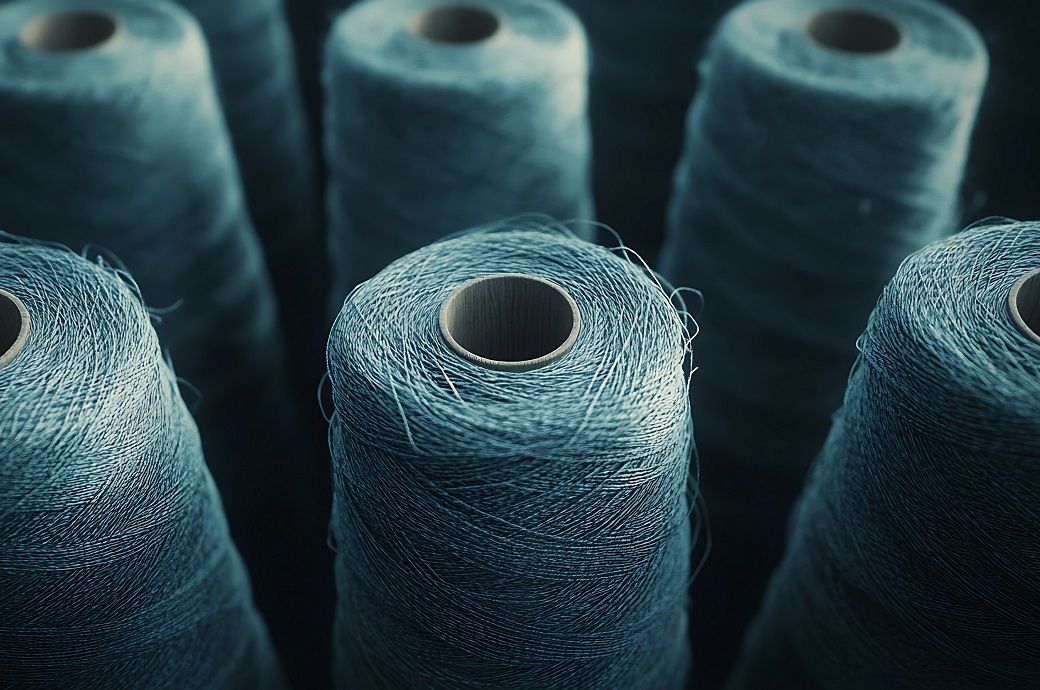
The Ludhiana market witnessed a mixed trend. Polyester-cotton prices were stable due to slightly better demand, but polyester yarn eased by ₹1-2 per kg. Demand for polyester yarn remained slow due to seasonal effects. However, there was better buying of PC yarn in the market. A trader from the Ludhiana market told Fibre2Fashion, “Polyester yarn buying has slowed down due to the seasonal effect and payment issues. The fabric industry is more focused on PC fabric, which will be in demand in the coming months. There was no immediate major impact of budget provisions on yarn trade. The market will take direction when it notices the supply position in the coming weeks.”
In Ludhiana, 30 count PC combed yarn (48/52) traded at ₹210-220 (approximately $2.40-2.52) per kg (GST inclusive); 30 count PC carded yarn (65/35) at ₹196-206 (approximately $2.24-2.36) per kg; 20 recycled polyester at ₹113-120 (approximately $1.29-1.37) per kg; 30 count polyester spun at ₹157-164 (approximately $1.80-1.88) per kg (GST inclusive); recycled polyester fibre (PET bottle fibre) at ₹79-82 (approximately $0.90-0.94) per kg; and virgin polyester fibre at ₹103 (approximately $1.18) per kg.
Viscose yarn prices were stable in the Mumbai and Surat markets. Demand from the downstream industry settled after a mismatch in supply and demand, which caused prices to rise in recent weeks. According to market sources, viscose yarn demand is not very encouraging, but its prices had risen due to a shortage of supply. Several local manufacturers have stopped production after a long period of very poor demand. Now, supply has been reduced to a low level, which cannot even meet the limited demand.
In Mumbai, imported 30 count viscose vortex yarn was priced at ₹201-205 (approximately $2.30-2.34) per kg; and local 30 count ring-spun viscose yarn at ₹202-207 (approximately $2.31-2.37) per kg in this market. In Surat, 30 viscose compact yarn (local) was sold at ₹215-216 (approximately $2.46-2.47) per kg (GST extra) and 30 viscose vortex yarn at ₹205-206 (approximately $2.34-2.36) per kg.
Surat's polyester yarn market also noticed weak demand. However, its prices were hovering at the previous levels. According to market sources, buyers' purchasing capacity was dented due to slow payment flow. Trading and manufacturing communities are focusing on payment settlements in the last two months of the current fiscal.
In Surat, 30 count polyester spun yarn was traded at ₹145-146 (approximately $1.66-1.67) per kg (GST extra); 40 count poly spun yarn at ₹158-159 (approximately $1.81-1.82) per kg; 50/48 fully drawn yarn (FDY) at ₹115-116 (approximately $1.32-1.33) per kg; 75/72 FDY at ₹105-106 (approximately $1.20-1.21) per kg; and 75 bright yarn at ₹105-106 (approximately $1.20-1.20) per kg.
In north India, cotton prices improved by ₹10-20 per maund of 37.2 kg after gains in ICE cotton. Stronger ICE cotton encouraged local buyers towards domestic cotton. Traders said that farmers have reduced supply following recent price falls. Lower arrivals also supported cotton prices in the north Indian market. Spinning mills are buying cotton according to their immediate requirements.
North India's cotton arrival was 10,000 bales of 170 kg, comprising 500 bales in Punjab, 2,500 bales in Haryana, 4,000 bales in upper Rajasthan, and 3,000 bales in lower Rajasthan. Cotton prices in Punjab ranged from ₹5,500 to ₹5,510 (approximately $62.89-63.01) per maund of 37.2 kg, while in Haryana, prices ranged from ₹5,490 to ₹5,510 (approximately $62.78-63.01). In upper Rajasthan, cotton was priced between ₹5,520- ₹5,550 (approximately $63.12-63.46) per maund. In lower Rajasthan, it was priced at ₹52,600 to ₹53,600 (approximately $601.48-612.91) per candy of 356 kg. While seed cotton was priced at ₹7,100-7,400 (approximately $81.19-84.62) per quintal of 100 kg.
ALCHEMPro News Desk (KUL)
Receive daily prices and market insights straight to your inbox. Subscribe to AlchemPro Weekly!